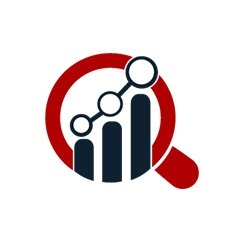Regulatory Updates and Patent Expirations to Reshape the Hydroxychloroquine Market in the Coming Years

Regulatory Updates and Patent Expirations to Reshape the Hydroxychloroquine Market in the Coming Years
The global hydroxychloroquine market is on the cusp of significant transformation, driven by a confluence of regulatory updates and the expiration of key patents. These factors are poised to reshape the competitive landscape, influence pricing strategies, and potentially open doors for new market entrants and formulations in the coming years.
Patent expiration is a critical factor that significantly impacts the pharmaceutical market. As patents for original, branded formulations of hydroxychloroquine expire in various regions, it paves the way for generic manufacturers to enter the market. This increased competition typically leads to a substantial decrease in the price of the drug, making it more affordable and accessible to a wider patient population. The impact of patent expiration is already evident in many markets, and further expirations in the coming years will likely amplify this trend globally. This price erosion can be both a benefit for patients and a challenge for innovator companies, who may see a significant reduction in revenue.
Regulatory updates issued by health authorities around the world also play a crucial role in shaping the hydroxychloroquine market. These updates can encompass various aspects, including manufacturing standards, drug safety regulations, labeling requirements, and guidelines for the appropriate use of the drug. Changes in these regulations can necessitate adjustments in manufacturing processes, packaging, and marketing strategies for pharmaceutical companies. For instance, stricter safety monitoring requirements or changes in prescribing guidelines for specific patient populations can influence how hydroxychloroquine is used and perceived by healthcare providers.
Furthermore, regulatory decisions regarding the approval of new formulations or indications for hydroxychloroquine can significantly impact market dynamics. If regulatory bodies approve extended-release formulations or combination therapies involving hydroxychloroquine, it could create new market opportunities and potentially shift prescribing patterns. Conversely, any adverse regulatory decisions or safety concerns raised by health authorities could negatively impact the market.
The scrutiny that hydroxychloroquine faced during the COVID-19 pandemic also has lasting implications for its regulatory landscape. While most health authorities have concluded that it is not effective for treating COVID-19, the intense public and scientific debate may lead to more cautious regulatory oversight of the drug in general. This could manifest in stricter labeling requirements or more focused monitoring of adverse events.
The interplay between patent expirations and regulatory landscapes can create both opportunities and challenges for pharmaceutical companies. Generic manufacturers stand to benefit from patent expirations, allowing them to produce and market more affordable versions of the drug. However, they must also adhere to all relevant regulatory requirements in each market they operate in. Innovator companies, on the other hand, will need to focus on strategies such as developing novel formulations with patent protection, exploring new therapeutic applications for hydroxychloroquine, or focusing on niche markets to mitigate the impact of generic competition.
The regulatory environment can also influence the speed and ease with which generic drugs enter the market after patent expiration. Streamlined regulatory pathways for generic approvals can accelerate market entry and increase price competition more quickly. Conversely, more stringent approval processes can delay the availability of generics.
In conclusion, the hydroxychloroquine market in the coming years will be significantly shaped by ongoing patent expirations and evolving regulatory landscapes. These factors will influence pricing, competition, and the availability of different formulations. Pharmaceutical companies will need to be agile and adapt their strategies to navigate this changing environment, while regulatory authorities will play a crucial role in ensuring patient access to affordable, high-quality medications while maintaining stringent safety standards.
- Questions and Answers
- Opinion
- Motivational and Inspiring Story
- Technology
- Live and Let live
- Focus
- Geopolitics
- Military-Arms/Equipment
- Segurança
- Economy
- Beasts of Nations
- Machine Tools-The “Mother Industry”
- Art
- Causes
- Crafts
- Dance
- Drinks
- Film/Movie
- Fitness
- Food
- Jogos
- Gardening
- Health
- Início
- Literature
- Music
- Networking
- Outro
- Party
- Religion
- Shopping
- Sports
- Theater
- Health and Wellness
- News
- Culture

